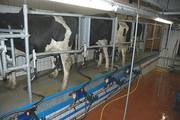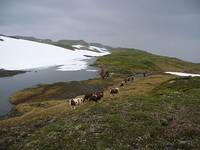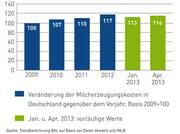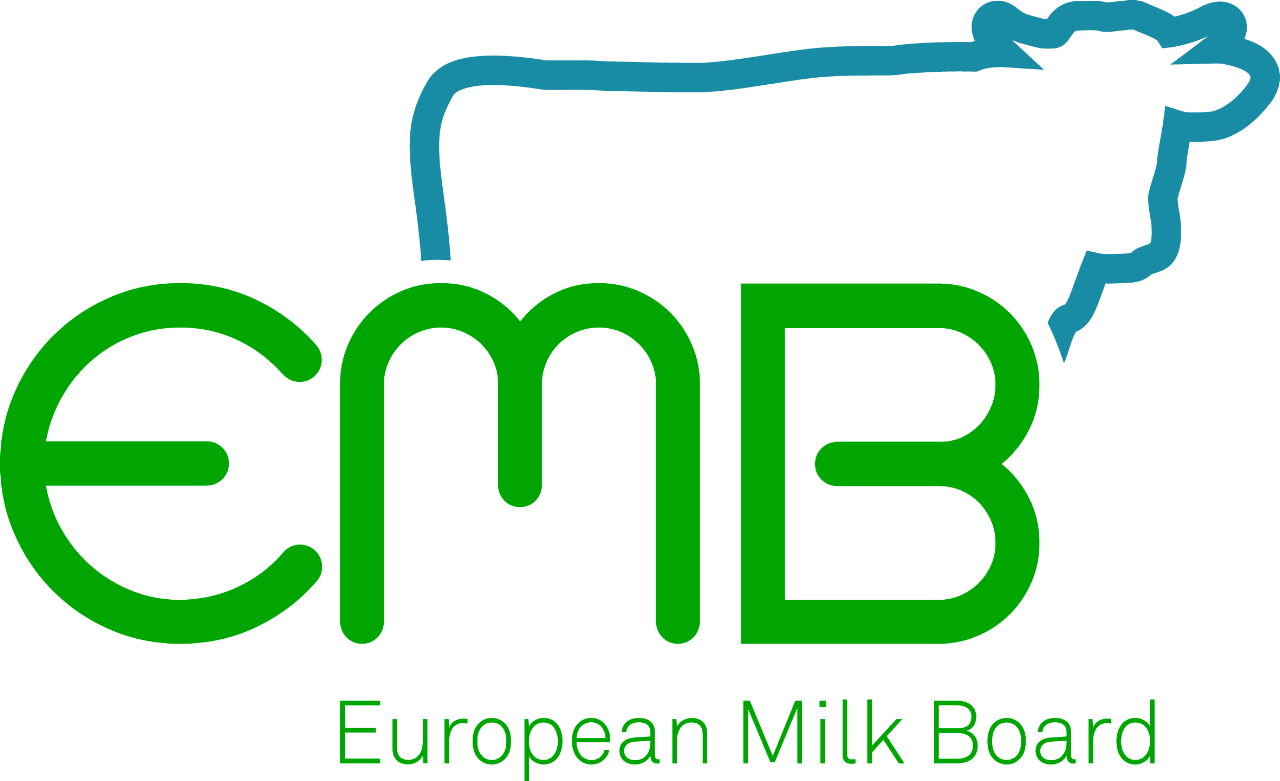EMB Newsletter September 2013
Newsletter as PDF
Contact
European Milk Board
Rue du Commerce 124
B-1000 Brussels
Phone: 0032/2808/1935
Fax: 0032/2808/8265
E-Mail: office@europeanmilkboard.org
Website: http://www.europeanmilkboard.org
Newsletter as PDF
Contact
EMB - European Milk Board asbl
Rue de la Loi 155
B-1040 Bruxelles
Phone: +32 - 2808 - 1935
Fax: +32 - 2808 - 8265
Dear Dairy Farmers and Interested Parties,
The major Milk Conference in Brussels, being held on 24 September and chaired by the European Commissioner for Agriculture Dacian Ciolos, represents a potentially big step for the milk sector in Europe. During this important conference, the European Commission will present the results of research into the milk market and the dairy sector aspects after 2015. This will be a notable opportunity for dialogue with the EU institutions, where crucial decisions for the future of the dairy sector and our farms will be discussed.
The EMB will take advantage of this conference and put forward its proposal for a flexible EU milk supply management system. In the last few months, especially from last November, with great strength and determination we have carried out a big lobbying campaign through historical demonstrations, like those in Berlin and Brussels.
During the conference we will be able to explain to the EU institutions the EMB project in view of the abolition of milk quotas in 2015. The aim of our project will be the establishment of a monitoring agency - equally representing producers, consumers, retailers and industry. The monitoring agency will ensure cost-covering milk prices and help avoid a further dairy market crisis in the EU. We cannot accept the current rules that kill producers and make them lose money by producing milk, as in the last thirty years.
Romuald Schaber, the EMB President, will present our proposal at the conference, drawn up with the assistance of academics. The EMB will be the only milk producer association taking part in the conference and having the opportunity to reveal its study results and proposals for the future of the sector.
This is a significant moment for all of us that can motivate us to stay together. That is the only way to make the EMB, a structure created to protect the interests of milk producers, part of the European context.
Roberto Cavaliere (Member of the EMB Board)
Appeal from Belgium to think and act
It is no disgrace to point out that although the price paid for milk is currently a little better it still isn’t enough: in this respect one need only recall the independent study of the cost situation of milk production in Germany that proved a milk price of 50 cents necessary for a cost-covering income. The so-called milk marker index (MMI) based on the study results comes to the same conclusion.
The crisis now affecting the egg sector, for instance, vividly shows us precisely the fate that undoubtedly awaits us, i.e. a situation of overproduction in which the price of eggs paid to the producer covers just half of the production costs.
Interview about milk production cost surveys
In the interview below, Dr. Karin Jürgens from the Büro für Agrarsoziologie & Landwirtschaft (Agro-sociological and agricultural studies office, BAL) in Germany, already commissioned by the EMB and allied organisations to produce two studies on the costs of milk production in Germany and France, answers questions on the background to and specific criteria of these milk cost surveys.
How were the production costs worked out, and on what basis?
The substantial basis for working out the production costs is the farms’ accounting data gathered by the European Union, known as the FADN data.
Norwegian milk market regulation
Norwegian milk production is characterised by a long established market regulation system. The aim is to adjust production to market demand in order to ensure a predictable price for the producer and provide a stable supply for the consumer. There is also a strong policy to maintain milk production in all areas despite large climatic and topographical variations.
There is a farmer-owned co-operative called Tine responsible for regulating the milk market in Norway. Tine distributes 95% and processes 80% of all milk produced in Norway.
French farmers’ association: People in glass houses shouldn’t throw stones
On 1 August Lactalis, a major French dairy group, wrote a letter to all its milk producers.
The letter was drawn up as a reply to some farmers having demonstrated in July in front of the dairy’s company signs and product displays. In its letter Lactalis calls the farmers’ behaviour inappropriate and without any legitimacy. The demonstrators, the letter says, were undoubtedly members of the French farmers’ association FNSEA and the majority of them supplied other dairies, primarily co-operatives, in which they not only were members but often had leading roles.
Milk Marker Index (MMI) indicates slight increase of milk production costs
The current results of the Milk Marker Index for milk production costs in Germany, published by the German MEG Milch Board at the beginning of September, show a slight rise in costs of about 1 cent/kg milk for the month of April. The current value of the Milk Marker Index amounts to 116 (2009=100). Compared to the January value of 113 it thus rose by 3 points.
EMB Calendar
Please find below some of the most important events in September 2013:
4.09.: Hearing in the European Parliament on price volatility in agricultural markets in Brussels
5.09.: Board meeting in Brussels
17.09.: Meetings with the cabinet of the EU Commissioner for Agriculture and MEPs in Brussels
24.09.: Milk conference of the European Commission in Brussels
Full Texts
Appeal from Belgium to think and act

It is no disgrace to point out that although the price paid for milk is currently a little better it still isn’t enough: in this respect one need only recall the independent study of the cost situation of milk production in Germany that proved a milk price of 50 cents necessary for a cost-covering income. The so-called milk marker index (MMI) based on the study results comes to the same conclusion.
The crisis now affecting the egg sector, for instance, vividly shows us precisely the fate that undoubtedly awaits us, i.e. a situation of overproduction in which the price of eggs paid to the producer covers just half of the production costs. The opening of the markets to countries in which environmental, animal welfare and social standards cannot be compared to ours makes matters even worse.
There is discussion in Europe at the moment of the transatlantic free trade agreements that entail the risk of the United States flooding Europe with milk and meat produced by the labour of exploited Mexican workers under the harshest conditions. On top of that there is the crisis of thousands of billions of euros that went down the drain because of dubious speculation by the banks which the politicians now want us to pay for through endless austerity programmes – without having ever asked us beforehand. In the end the only people profiting from this system is one per cent of our society and the far too many politicians who are themselves incapable of tightening their own belts.
However, we must not lose sight of the fact that we are not the only ones in this situation. In Belgium alone we just have to look around to see Caterpillar, Ford, Arcelor-Mittal – the entire production sector that is suffering. That is why we farmers have joined forces with other sectors and civil society and formed the D19-20 alliance to fight for our common future. Every organisation that wishes to join us is more than welcome.
We call on everyone to support us by adding their signature: go to the http://www.d19-20.be/fr/onderschrijf-de-oproep/ website. There you will find all the key information on gatherings and campaigns of action planned.
Join us: we’re counting on you!
Alain Minet (MIG)





